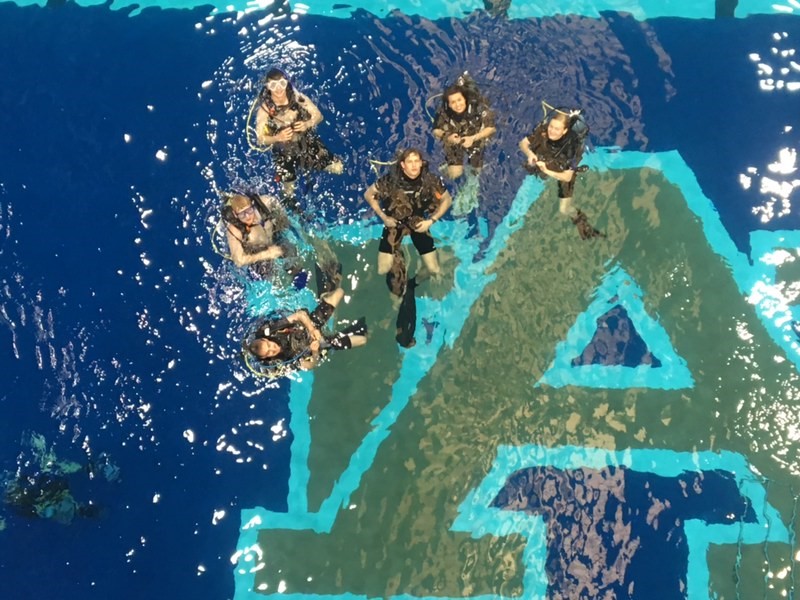Contributed by Kaitlyn Baker, ASI Divemaster, Auburn University Alumna ‘18

Auburn students Randall Dunlap and Kelly Burnham
SCUBA diving is an amazing opportunity to discover the world below sea level. With the ocean covering the majority of the earth, there is so much to explore. Ocean life dates to the beginning of time. Diverse plants, invertebrates, and vertebrates ensure beautiful dives all over the globe. Divers get a front row seat to the amazing underwater world. With that, we also see firsthand the effects of global climate change. By being knowledgeable divers, we can have an impact on the world around us.
Coral reefs are the second most biodiverse ecosystem behind tropical rain forests. Reefs are an intertwined environment where each small factor plays a role in keeping the equilibrium and system functioning. So many people live near the coast and rely on this ecosystem to sustain life. Ecotourism in these areas is growing. Most divers love the travel that comes along with diving. Considering travel arrangements that have a lower footprint will be beneficial to both divers and locals.
Just like divers can observe the effects of climate change, we can also contribute to the damage if we aren’t safe and careful. It is important to remember we are in an environment that is not our own and to treat it with respect. Never dive too close to a reef to ensure you don’t kick the coral with your fins or a piece of gear does not come in contact with the reef. Spearfishing is popular among recreational divers. Fishers should be knowledgeable about limits and seasons. Spearfishing can be very beneficial to reefs with the removal of invasive species, such as lionfish in the Atlantic.

Auburn Students in PHED 1760
Choose a dive operation that is knowledgeable about the local environment and uses sustainable diving practices. An old phrase, “take only pictures, leave only bubbles” is how we want to dive. Divers are ambassadors for the underwater world who can influence others but leave our dive sites exactly how we found them.
Want to learn more? Auburn Alabama’s local dive center is Adventure Sports SCUBA, Inc. SCUBA courses are offered year-round for those wanting to learn how to dive.
Auburn University students may also take the SCUBA diving course (PHED 1760) and earn university credit. The Auburn University Marine Biology Club is another great way to get involved and learn more with others who have a passion for the seas.




